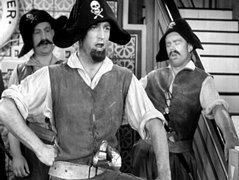Critical
Contemporary reviews were poor. The Sydney Morning Herald wrote that:
Pace is the essence of a variety show, and pace is what Cinesound Varieties definitely lacks... The text which holds everything together is painfully weak, and the humour deplorable. These are two points in which every Australian film so far, except On Our Selection has come desperately to grief; and, even in On Our Selection, the actors and the photographs had to triumph over unfavourable material. Talk of winning success in oversea markets will remain so much beating of empty air as long as producers continue to give text and narrative value last place in their attention, instead of putting these matters first. Sooner or later, the literary side of things must come into its own. [8]
"It is difficult to believe that Cinesound Varieties comes from the same studio as The Silence of Dean Maitland - if it did," said the reviewer from The Argus. "In it all those things that should not be done are done and all that should be done are left undone." [9]
"A sadly overdressed musical revue which has inherited all the evils the talkies were ever heir to, except the American slang," said The Advertiser. [10]
